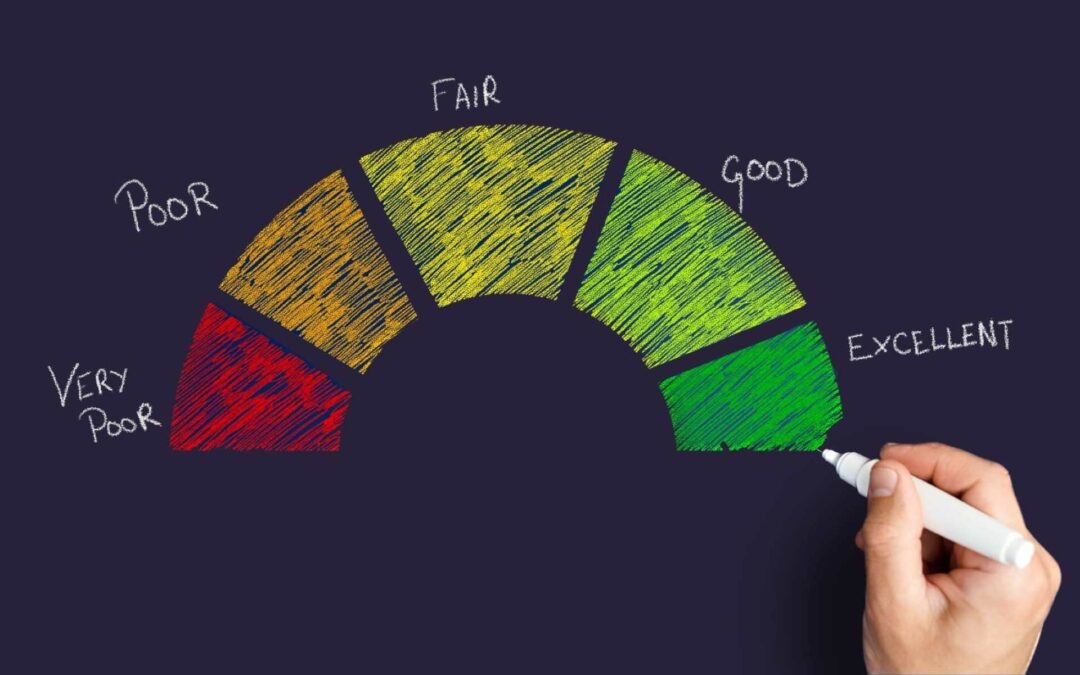Precisely, what is a CIBIL score? A CIBIL score is a three-digit number that reflects a person’s creditworthiness. It is used by banks and financial institutions to assess their credit risk. It is an important parameter that determines a person’s eligibility for loans and credit cards. The score also affects the interest rates and credit limits offered to them.
It is calculated based on a person’s credit history, which includes factors such as their credit utilization, repayment history, length of credit history, and types of credit used.
Understanding what a credit score is, how it is calculated, and how it affects your financial health is crucial in today’s world where credit plays a significant role in our lives. In this era of digital lending, having a good CIBIL score is more important than ever, and can make a significant difference in achieving your financial goals.
In this article, we will explain what a good Cibil Score looks like, how it’s calculated and why it matters. We’ll also provide tips on how to improve your score so you can achieve good financial health.
Also learn about the regulation of the Indian Stock Market here.
What is a CIBIL score?
A CIBIL Score, or Credit Information Bureau (India) Limited Score, is a three-digit numeric summary of an individual’s credit history.
It is based on the information in an individual’s credit report and is used by banks, financial institutions, and other lenders to assess the creditworthiness of an individual.
The CIBIL Score ranges from 300 to 900, with higher scores indicating good credit health and lower scores indicating a greater risk of default.
How is it Calculated?
- Your CIBIL Score is calculated based on the information in your credit report, which includes details of all your loan and credit card accounts.
- It takes into account such factors as payment history, the amount of debt you have, the length of time you’ve had credit accounts, and any collection actions taken against you.
- The score is calculated using a complex algorithm that assigns points to each of these factors. They are then added up to generate your CIBIL Score.
What Is a Good CIBIL Score?
A good CIBIL Score is generally considered to be anything above 750 or 800. This depends on the lender and type of loan.
However, even if your score falls in the good range, lenders will still consider your other creditworthiness factors. They consider some things such as income and debt-to-income ratio before approving a loan.
How to Improve Your CIBIL Score?
If your score is below 750 or 800, there are several steps you can take to improve it.
- The most important thing is to make sure all your payments are made on time.
- You should also keep your credit utilisation ratio low. Avoid opening too many new accounts or taking out too many loans.
- Additionally, you can dispute any inaccurate information on your credit report. This will reflect an accurate picture of your credit history.
The Benefits of a Good CIBIL Score
Having good credit health can open up many opportunities for you.
- A good CIBIL Score will make it easier to get access to loans and other financial services. Some of them are mortgages and car loans.
- It can also help you get better terms on these products, such as lower interest rates or longer repayment periods.
- Finally, good credit health can provide peace of mind. Knowing that you are in good financial standing and can access the credit services you need will bring a sense of peace.
Conclusion
Having good credit health is essential for ensuring good financial health. By understanding what a good credit score looks like, how it’s calculated, and taking the necessary steps to improve your score, you can unlock a range of opportunities that may otherwise be unavailable to those with less than ideal scores.
With some effort and dedication on your part, achieving good credit health can help provide peace of mind in knowing that you have access to loans and other services when needed.
Remember to always consult a qualified financial advisor before making any major decisions regarding your finances or creditworthiness.

